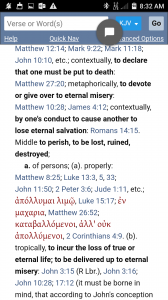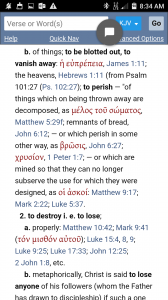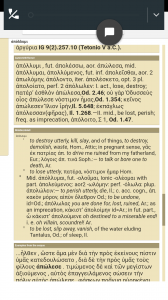Universalism = apokatastasis
"Augustine himself, after rejecting apokatastasis, and Basil attest that still late in the fourth and fifth centuries this doctrine was upheld by the vast majority of Christians
(immo quam plurimi)."
"Of course there were antiuniversalists also in the ancient church, but scholars must be careful not to list among them — as is the case with the list of “the 68” antiuniversalists repeatedly cited by McC on the basis of Brian Daley’s The Hope of the Early Church — an author just because he uses πῦρ αἰώνιον, κόλασις αἰώνιος, θάνατος αἰώνιος, or the like, since these biblical expressions do not necessarily refer to eternal damnation. Indeed all universalists, from Origen to Gregory Nyssen to Evagrius, used these phrases without problems, for universalists understood these expressions as “otherworldly,” or “long-lasting,” fire, educative punishment, and death. Thus, the mere presence of such phrases is not enough to conclude that a patristic thinker “affirmed the idea of everlasting punishment” (p. 822). Didache mentions the ways of life and death, but not eternal death or torment; Ignatius, as others among “the 68,” never mentions eternal punishment. Ephrem does not speak of eternal damnation, but has many hints of healing and restoration. For Theodore of Mopsuestia, another of “the 68,” if one takes into account also the Syriac and Latin evidence, given that the Greek is mostly lost, it becomes impossible to list him among the antiuniversalists. He explicitly ruled out unending retributive punishment, sine fine et sine correctione.
I have shown, indeed, that a few of “the 68” were not antiuniversalist, and that the uncertain were in fact universalists, for example, Clement of Alexandria, Apocalypse of Peter, Sibylline Oracles (in one passage), Eusebius, Nazianzen, perhaps even Basil and Athanasius, Ambrose, Jerome before his change of mind, and Augustine in his anti-Manichaean years. Maximus too, another of “the 68,” speaks only of punishment aionios, not aidios and talks about restoration with circumspection after Justinian, also using a persona to express it. Torstein Tollefsen, Panayiotis Tzamalikos, and Maria Luisa Gatti, for instance, agree that he affirmed apokatastasis.
It is not the case that “the support for universalism is paltry compared with opposition to it” (p. 823). Not only were “the 68” in fact fewer than 68, and not only did many “uncertain” in fact support apokatastasis, but the theologians who remain in the list of antiuniversalists tend to be much less important. Look at the theological weight of Origen, the Cappadocians, Athanasius, or Maximus, for instance, on all of whom much of Christian doctrine and dogmas depends. Or think of the cultural significance of Eusebius, the spiritual impact of Evagrius or Isaac of Nineveh, or the philosophico-theological importance of Eriugena, the only author of a comprehensive treatise of systematic theology and theoretical philosophy between Origen’s Peri Archon and Aquinas’s Summa theologiae. Then compare, for instance, Barsanuphius, Victorinus of Pettau, Gaudentius of Brescia, Maximus of Turin, Tyconius, Evodius of Uzala, or Orientius, listed among “the 68” (and mostly ignorant of Greek). McC’s statement, “there are no unambiguous cases of universalist teaching prior to Origen” (p. 823), should also be at least nuanced, in light of Bardaisan, Clement, the Apocalypse of Peter’s Rainer Fragment, parts of the Sibylline Oracles, and arguably of the NT, especially Paul’s letters.
Certainly, “there was a diversity of views in the early church on the scope of final salvation.” Tertullian, for instance, did not embrace apokatastasis. But my monograph is not on patristic eschatology or soteriology in general, but specifically on the doctrine of apokatastasis. Thus, I treated the theologians who supported it, and not others."
The Christian Doctrine of Apokatastasis: The Reviews Start Coming In
Ilaria Ramelli, The Christian Doctrine of Apokatastasis: A Critical Assessment from the New Testament to Eriugena (Brill, 2013. 890 pp.)
Scholars directory, with list of publications:
Ilaria L.E. Ramelli - ISNS Scholars Directory
Believers and Supporters of Christian Universalism:
>Believers and Supporters of Christian Universalism




